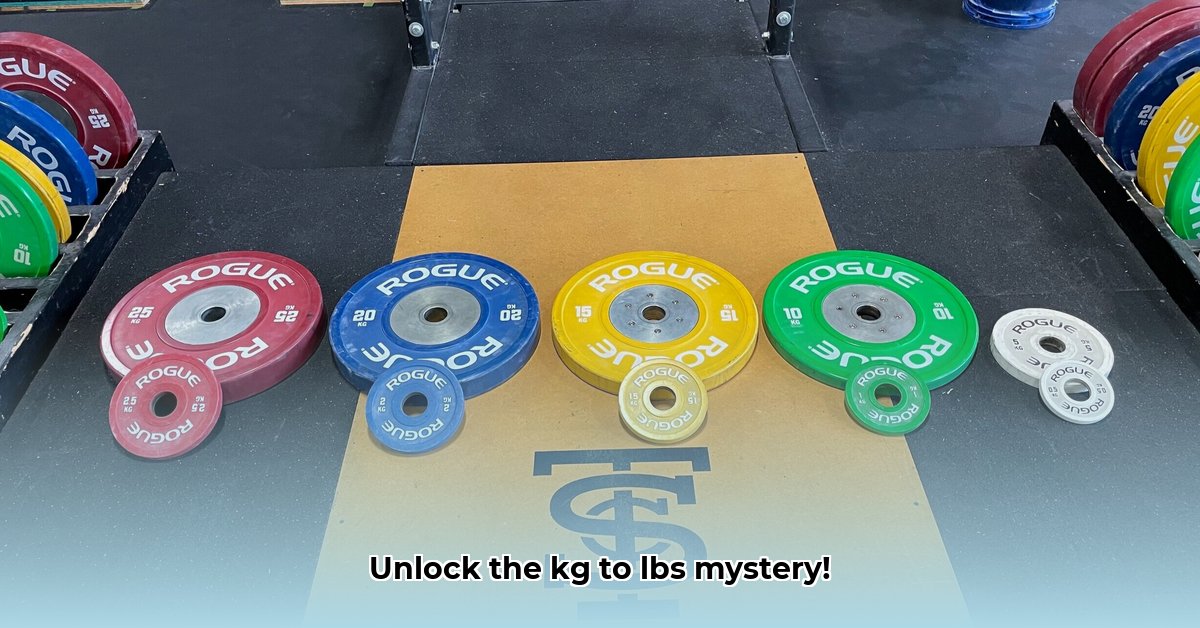
Ever needed to convert kilograms to pounds? Whether you're shipping a package, following a recipe, or working in a scientific field, understanding this conversion is crucial. This guide provides a precise method for converting 198 kilograms to pounds, exploring different levels of accuracy and their implications in various contexts. For more on weight conversions, see this helpful resource on vehicle weights.
Understanding Kilogram to Pound Conversion
The simplest method for converting kilograms (kg) to pounds (lbs) involves multiplying the weight in kilograms by approximately 2.2. This quick calculation provides a rough estimate, useful for everyday situations. For 198 kg, this yields roughly 436 lbs. However, for precise applications, a more detailed understanding is necessary.
Why aren't all conversion results identical? The discrepancy arises from the inherent definitions of these units. The kilogram is the base unit of mass in the metric system, while the pound is defined in relation to the kilogram. This relationship introduces a more complex conversion factor than simply "2.2," impacting the precision of the result.
Precision: A Deeper Dive
The level of precision is crucial. A simple estimation suffices for casual uses, but scientific, engineering, or pharmaceutical applications demand greater accuracy. Consider these methods:
| Conversion Method | Conversion Factor | Result (lbs) | Precision Level | Suitable For... |
|---|---|---|---|---|
| Quick Estimate | 2.2 | 435.6 | Low | Everyday estimations |
| Common Approximation | 2.20462 | 436.34756 | Medium | General applications |
| High-Precision Conversion | 2.2046226218 | 436.347564396 | High | Scientific/pharmaceutical |
As the table illustrates, incrementally increasing the decimal places in the conversion factor yields a more precise outcome. While the differences may seem negligible in some cases, the implications can be significant in contexts demanding high accuracy, such as those discussed below.
Real-World Applications: Where Precision Matters
The need for precise conversion varies dramatically across different applications:
Shipping and Logistics: Accurate weight calculations prevent extra shipping costs, delays, or rejected shipments. Over- or underestimation can create significant financial or logistical issues. International freight relies heavily on exact weight conversions.
Cooking and Baking: While minor variations might not ruin a simple recipe, precise measurements are critical in certain culinary contexts, particularly those requiring exact ingredient ratios.
Scientific Research and Engineering: In fields such as medicine, aerospace, and materials science, minute errors in measurements can affect experiment outcomes or compromise structural integrity. Precision is paramount.
Pharmaceutical Applications: Dosage calculations in medicine necessitate extreme accuracy. Even a small error in weight conversion could have serious, potentially life-threatening consequences. Therefore, understanding how to accurately convert kilograms to pounds for pharmaceutical applications is critical.
"The accuracy of weight conversion is paramount in pharmaceutical manufacturing and dosage calculations," states Dr. Anya Sharma, PhD, Lead Scientist at PharmaTech Innovations. "Even seemingly insignificant rounding errors can lead to potentially harmful discrepancies."
Step-by-Step Conversion: A Practical Guide
To ensure the most accurate results, follow these steps:
Identify the conversion factor: Choose the appropriate conversion factor based on the required precision (see table above). For high precision, use 2.2046226218.
Perform the calculation: Multiply the weight in kilograms by the chosen conversion factor. For 198 kg, using the high-precision factor gives 436.347564396 lbs.
Round to the appropriate decimal place: Round the result to the level of precision required for your specific application.
Conclusion: Choosing the Right Method
The optimal conversion method depends entirely on the application's context. While a quick estimation suffices for many daily scenarios, high-precision conversions are critical when accuracy is paramount. By understanding the nuances of kilogram-to-pound conversion and selecting the appropriate method, one can ensure accurate and reliable results across diverse fields. Remember to always prioritize accuracy whenever possible, particularly in situations with significant consequences.